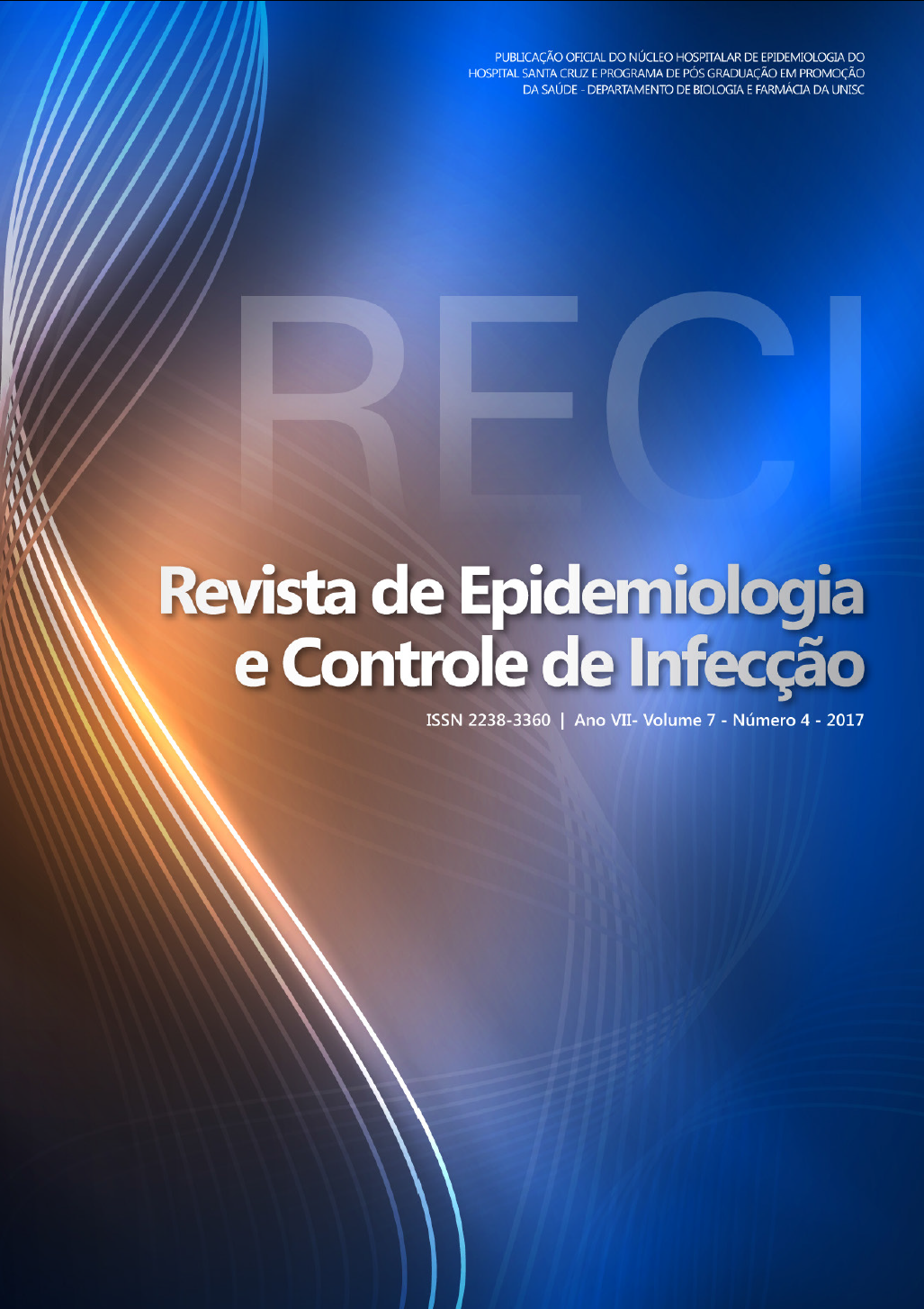Rise of antimicrobial resistance in Klebsiella spp. in a country town of Rio Grande do Sul, Brazil
DOI:
https://doi.org/10.17058/reci.v7i4.9345Abstract
Background and Objectives: Several infections by multidrug-resistant Klebsiella spp. have been report worldwide, because of the capacity of these bacteria in acquire many resistance mechanisms and rapidly spread through clinical units. The aim of this study was evaluate the antimicrobial susceptibility profile of Klebsiella spp. in a hospital of a country town of Rio Grande do Sul, Brazil. Methods: This study investigated the resistance profile of Klebsiella spp. strains isolated between 2014 and 2015, in a regional hospital of a small town. The patient’s charts and microbiological assays were review, including age, sex, date, anatomical site of isolation, origin, and antimicrobial susceptibility test. Results: Forty-two strains were isolated during 2014 and 2015. The positive cultures were from urine (57%), secretions (38%), and blood (5%). Was observed antibiotic resistance in 81% of the strains, and 62% showed multidrugresistance. The resistance profile for β-lactams, mainly cefalosporin and carbapenem, and for aminoglycosides and tetracycline increased in the study period. Conclusion: In this study we showed an increase in antibiotic resistance in a hospital at a small town, highlighting the emergence of carbapenem resistant Klebsiella spp. during 2015. The spread of multidrug-resistant bacteria in this hospital enhance the importance of epidemiological surveillance and establishment of infection control procedures.Downloads
Downloads
Published
How to Cite
Issue
Section
License
The author must state that the paper is original (has not been published previously), not infringing any copyright or other ownership right involving third parties. Once the paper is submitted, the Journal reserves the right to make normative changes, such as spelling and grammar, in order to maintain the language standard, but respecting the author’s style. The published papers become ownership of RECI, considering that all the opinions expressed by the authors are their responsibility. Because we are an open access journal, we allow free use of articles in educational and scientific applications provided the source is cited under the Creative Commons CC-BY license.


